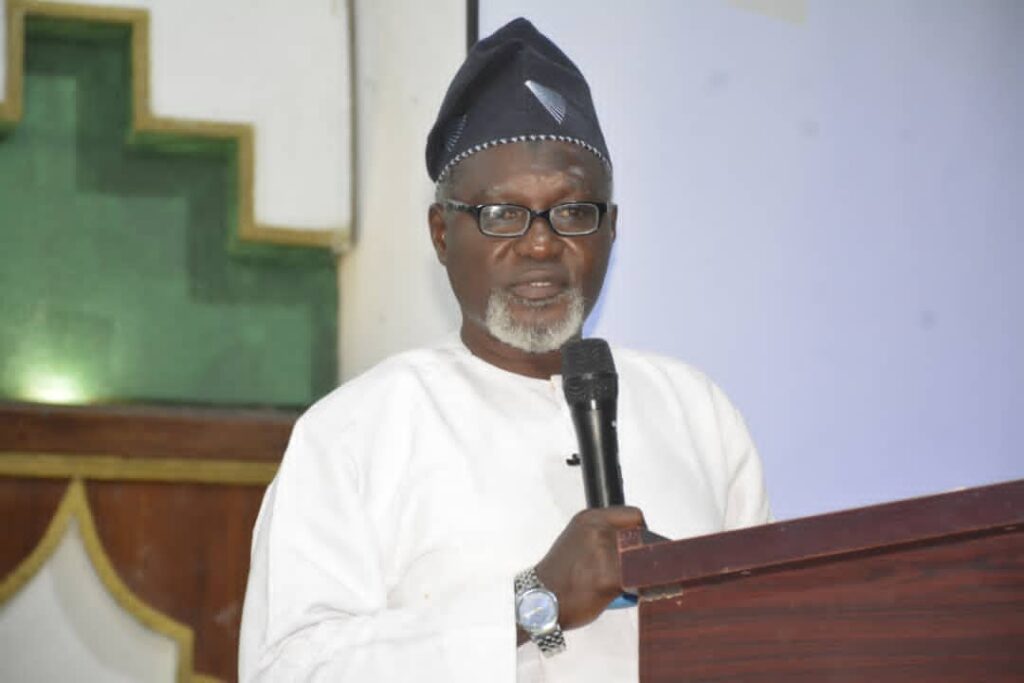Daud Olatunji
Prominent Muslim scholars, activists, and citizens under the aegis of Concerned Muslim Scholars, Civil Society, and Citizens for Justice and Peace in Nigeria have raised alarm over the persistent mass killings, abductions, and displacement of innocent civilians across Northern Nigeria, describing the silence of authorities and the public as “complicity before God and history.”
In a strongly worded statement titled “Muslim Response to the Mass Killings in Northern Nigeria: Between Faith, Justice, and Survival,” the group, led by Prof. Taofiq Abdulazeez of the University of Abuja, condemned what it called “criminal neglect” of the predominantly Muslim victims in the North-West and North-East regions, calling for urgent humanitarian, legal, and spiritual interventions.
“Our silence is no longer neutrality; it is complicity before God and history,” the statement declared.
“Thousands of men, women, and children have been massacred in villages and highways. Farmlands are deserted, markets destroyed, schools burnt, and families scattered. The North bleeds. Yet, it often bleeds in silence — overshadowed by political noise and selective empathy.”
The Muslim leaders reaffirmed that Islam upholds the sanctity of all human life, quoting the Qur’an (5:32):
“Whoever kills a soul unjustly… it is as if he has killed all mankind; and whoever saves one, it is as if he has saved all mankind.”
They stressed that both the Law of Allah and the Nigerian Constitution mandate the protection of every citizen, regardless of faith or ethnicity.
“We reject all forms of violence, whether committed in the name of religion, tribe, or politics,” the group said.
“However, when a particular population — largely Muslims — becomes a recurring target of unchecked killings and abductions, and the state repeatedly fails to protect them or prosecute offenders, moral and spiritual responsibility fall upon the Ummah to act.”
Calling for a “dual jihad” — spiritual and social — the scholars urged Muslims to combine prayers and moral reform with organized social action, including support for displaced victims.
“We call on Islamic organizations, wealthy individuals, and local communities to provide food, shelter, and medical support to displaced persons, establish trauma and education centres for affected children, and sponsor widows and orphans as sadaqah jāriyah (continuous charity),” they appealed.
They further called for a coordinated humanitarian response across the North, anchored by religious leaders, youth groups, and civil society organizations.
The group demanded an independent national inquiry—possibly with international participation—into the killings, kidnappings, and destruction ravaging northern communities.
“We demand an independent and transparent national inquiry into the mass killings, kidnappings, and destruction in the North,” they said. “We call on the Federal Government and State authorities to publish arrest and prosecution records of identified perpetrators.”
They also urged the National Assembly to summon security chiefs to publicly explain “persistent failures in intelligence and prevention.”
Expressing concern over the growing stigmatization of Muslims as perpetrators of violence, the statement called on Muslim scholars, journalists, and academics to counter divisive propaganda and document atrocities truthfully.
“Muslim scholars, journalists, and academics must counter the dangerous narratives that demonize entire ethnic or religious groups as ‘terrorists’,” it stated. “Every attack must be documented — names, locations, victims, and patterns — to preserve truth and evidence for justice.”
The statement linked much of the violence to external influences and arms trafficking from the Sahel region, urging the Nigerian government to intensify cross-border security cooperation and block foreign funding networks.
“Nigeria must intensify cross-border cooperation to cut off the foreign financing, arms smuggling, and mercenary networks fueling violence from the Sahel region,” the group noted.
They also appealed to the international community to treat the Northern crisis as both a humanitarian and security emergency, not merely an internal affair.
Quoting the Qur’an (4:135), the scholars emphasized that Islam demands justice even when it is uncomfortable:
“O you who believe, stand firmly for justice, as witnesses to Allah, even if it be against yourselves or your kin.
“Justice is not weakness; it is strength disciplined by divine fear,” the statement declared, warning against both vengeance and silence.
To forge a united front, the group urged traditional rulers, Islamic scholars, youth organizations, and civil society leaders to convene a Northern Muslim Peace and Justice Summit to develop a coordinated framework for humanitarian, legal, and moral response.
“We urge the Ulama, traditional rulers, civil society, and youth movements to convene a Northern Muslim Peace and Justice Summit to draft a coordinated response framework — humanitarian, legal, and moral,” the group proposed.
Concluding the statement, Prof. Abdulazeez reaffirmed the group’s faith and resolve in the face of widespread bloodshed.
“The blood of innocent Muslims in the North cries out for justice, not vengeance; for reform, not despair. We will not surrender our faith to fear, nor our destiny to chaos,” he declared.
The statement ended with a Qur’anic reminder (14:42): “and never think that Allah is unaware of what the wrongdoers do. He only delays them for a Day when eyes will stare in horror.”
Do you want to share a story with us? Do you want to advertise with us? Do you need publicity for a product, service, or event? Contact us on WhatsApp +2348183319097 Email: platformtimes@gmail.com
We are committed to impactful investigative journalism for human interest and social justice. Your donation will help us tell more stories. Kindly donate any amount HERE




